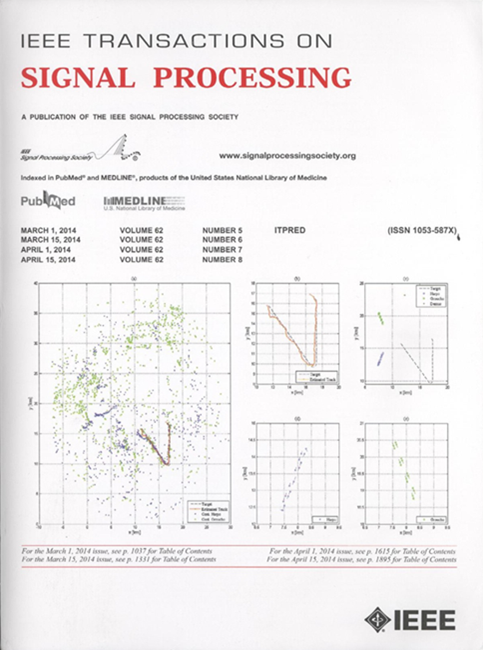A $\mathcal{K}$-Divergence Based Approach for Robust Regression Analysis
IF 5.8
2区 工程技术
Q1 ENGINEERING, ELECTRICAL & ELECTRONIC
引用次数: 0
Abstract
This paper deals with the problem of robust regression analysis in the presence of outliers in基于$\mathcal{K}$-散度的稳健回归分析方法
本文研究了输入和输出数据集中存在异常值时的鲁棒回归分析问题。在这种情况下,我们通过最小化输出和输入的假定参数函数之间的新鲁棒损失来推断系统的输入输出关系。考虑的损失来自最近开发的$\mathcal{K}$-散度的非寻常修改版本的经验估计(此处适用于回归分析)。这个改进的版本利用基于Parzen的非参数$\mathcal{K}$ kernel密度估计器的无模型数据加权机制,与输入和输出数据的底层联合分布相关联。所考虑的Parzen估计量涉及两个严格正的平滑“$\mathcal{K}$”核函数。这些是在输入和输出域中独立定义的,可能具有不同的带宽参数。这种数据加权策略可减少由于不同类型的输入和输出外围测量而造成的低密度污染。所考虑的方法用于GELU神经网络的鲁棒训练,并应用于函数逼近和时间序列预测。
本文章由计算机程序翻译,如有差异,请以英文原文为准。
求助全文
约1分钟内获得全文
求助全文
来源期刊

IEEE Transactions on Signal Processing
工程技术-工程:电子与电气
CiteScore
11.20
自引率
9.30%
发文量
310
审稿时长
3.0 months
期刊介绍:
The IEEE Transactions on Signal Processing covers novel theory, algorithms, performance analyses and applications of techniques for the processing, understanding, learning, retrieval, mining, and extraction of information from signals. The term “signal” includes, among others, audio, video, speech, image, communication, geophysical, sonar, radar, medical and musical signals. Examples of topics of interest include, but are not limited to, information processing and the theory and application of filtering, coding, transmitting, estimating, detecting, analyzing, recognizing, synthesizing, recording, and reproducing signals.
 求助内容:
求助内容: 应助结果提醒方式:
应助结果提醒方式:


